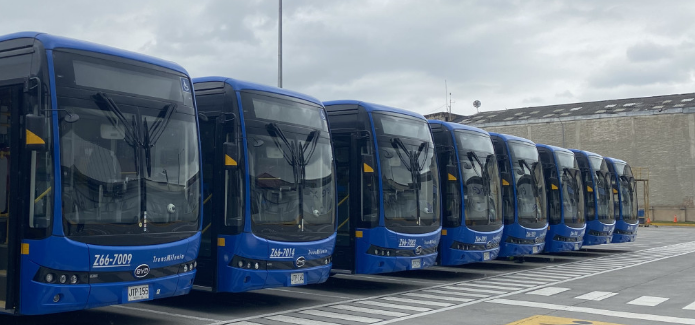The Uttar Pradesh State Road Transport Corporation (UPSRTC) is preparing to introduce 120 electric buses across cities in the National Capital Region (NCR). This initiative is part of a broader effort to mitigate air pollution levels that escalate during winter months, particularly in areas like Noida and Ghaziabad. The deployment aligns with directives from the Commission for Air Quality Management (CAQM), which has mandated a gradual phasing out of diesel-powered buses from these districts.
The UPSRTC has allocated a substantial budget of Rs 200 crore for the procurement of these electric buses, demonstrating its commitment to adopting cleaner and greener transportation solutions. The special secretary to the government, recently communicated with the transport department, affirming that while diesel buses will continue to operate in other districts, NCR cities will exclusively see electric buses as part of the transition to environmentally friendly options.
Highlighted the urgency of this shift, stating, “Operating electric buses in NCR cities is crucial due to heightened air pollution during the winter season. According to CAQM’s guidelines, all buses originating from NCR districts and travelling to Delhi must be either electric vehicles, CNG, or comply with BS-VI diesel standards. By 30th June 2026, all buses starting or ending their routes in the NCR must operate solely on CNG or electric vehicle modes.”
Currently, around 300 roadways buses operate daily from depots in Noida and Greater Noida, connecting various NCR destinations, including Meerut, Agra, Bulandshahr, Mathura, and Lucknow, among others. Several of these buses also service routes to Delhi’s key transit points such as Sarai Kale Khan, Kashmiri Gate, and Anand Vihar. In contrast, Ghaziabad has approximately 700 UPSRTC buses running from depots in Kaushambi, Loni, and Sahibabad, all of which currently operate on CNG. A UPSRTC official in Noida confirmed the proposal to introduce electric buses but noted that specific guidelines from the government are still awaited. “We have not yet received formal instructions in this regard. However, we are prepared to facilitate the transition once detailed guidelines are provided,” the official added.
The CAQM has underscored the significant contribution of the transport sector to the air pollution levels in Delhi-NCR during winter. In line with its directives, state governments are expected to ensure a considerable shift towards electric buses by 30th June 2028. In addition, on 20th August, CAQM directed urban local bodies in Delhi to reassess parking charges for private vehicles by 30th September, with new tariffs expected to be implemented by 1st November. These measures aim to enhance air quality management across the region, particularly during the winter months when pollution levels are most acute. The introduction of electric buses marks a pivotal step in UPSRTC’s strategy to enhance public transportation while addressing environmental concerns. If successful, this initiative could set a precedent for other states to follow, fostering a broader transition to sustainable urban mobility solutions across India.


